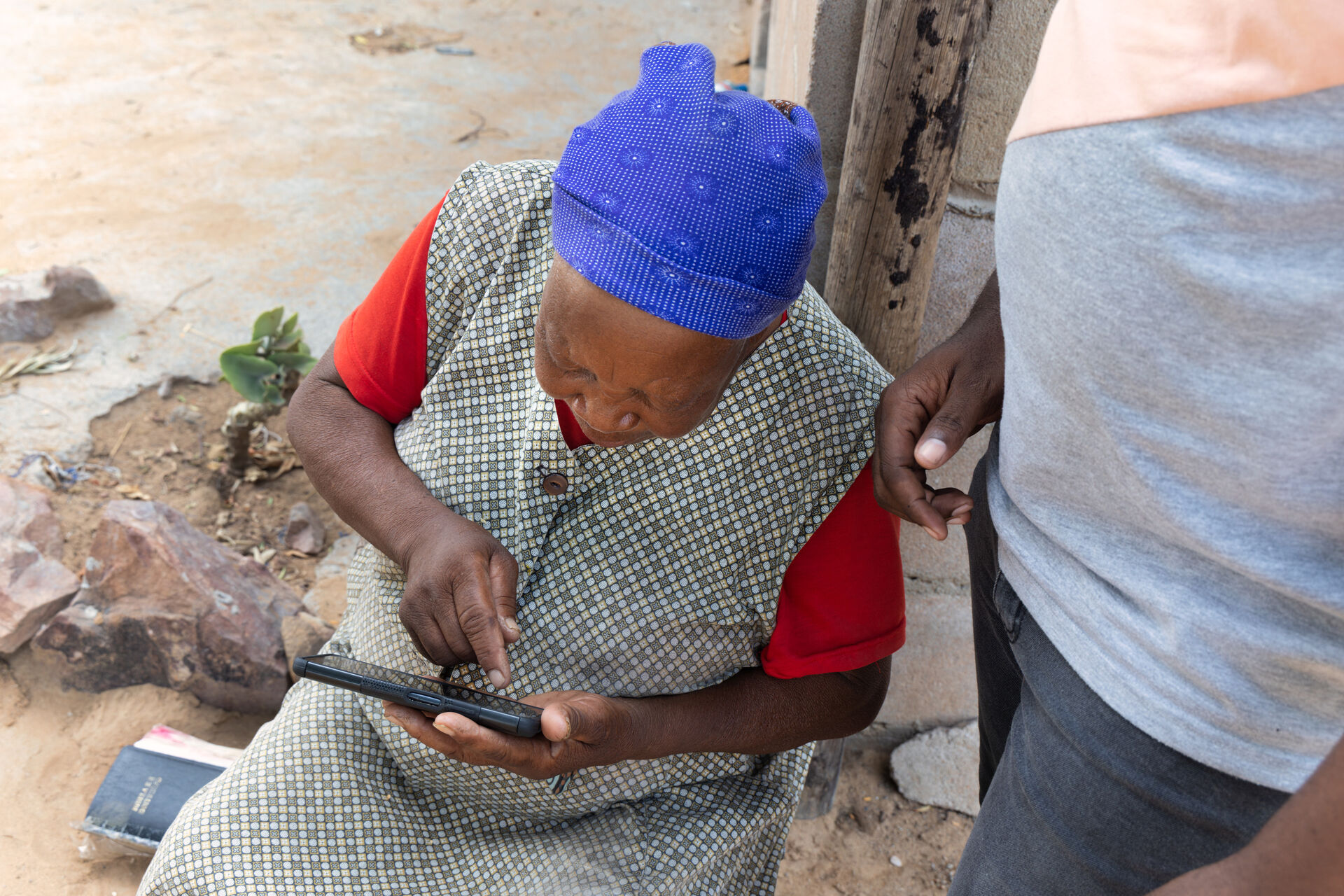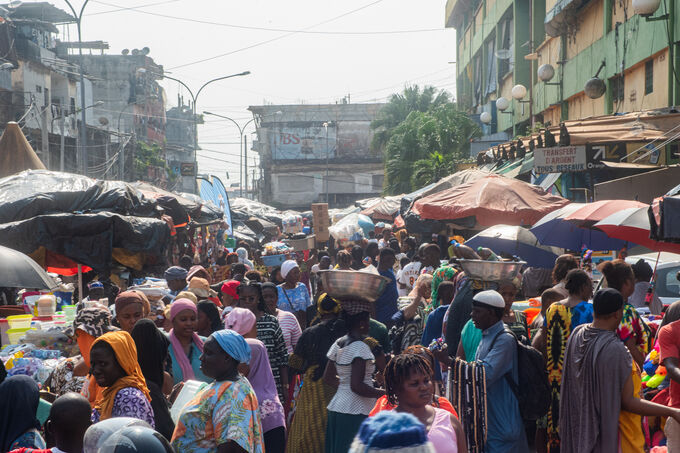
News
We have reached a potent moment for the global DPI agenda. Through its G20 presidency, how can South Africa accelerate the momentum?
by Co-authors: Sabine F. Mensah (AfricaNenda Foundation), David Porteous (Integral: Governance Solutions), Kay McGowan (Digital Impact Alliance), Juliet Wangui Maina (Better Than Cash Alliance), and Daniel Abadie (CDPI) - 26 June 2025

Digital public infrastructure (DPI) is most effective when it is rooted in local contexts, shaped by national priorities, and implemented through country-led efforts. By tailoring DPI to local needs, governments can ensure inclusive access and build systems that earn public trust. At the same time, international cooperation plays a vital role in unlocking the full value of DPI. Shared standards, interoperability, and collaboration across borders can amplify the benefits of domestic systems, enabling smoother trade, mobility, and digital service delivery. As countries shift to a DPI approach, it creates an opportunity to lay the foundations for regional digital market integration. Cooperation within and between countries is critical to ensuring that digital transformation maximizes public benefit and economic growth while building trust in the digital ecosystem.
The last two G20 Presidencies (India in 2023 and Brazil in 2024) confirmed the need for global digital cooperation and specifically prioritized the expansion of safe and trusted DPI. In 2023, India leveraged its G20 presidency to build the first-ever multilateral consensus on DPI in recognition of its societal benefits. And in 2024, Brazil’s Presidency delivered a joint Declaration on Digital Public Infrastructure, AI, and Data for Governance, further recognizing DPI as a lever of economic development and highlighting the importance of equitable data governance.
This year, with South Africa at the helm of the G20, the DPI agenda is focused on integrated governance and public value measurement. The Digital Economy Working Group (DEWG), a focal point for multilateral DPI discussion, has made clear its intention and commitment to “examine the different aspects of policy, regulation, and data governance required for DPI to be transformational.” Additionally, the DEWG is looking beyond traditional metrics of digital investment and exploring a measurement framework that captures the broader, dynamic effects of DPI. This commitment provides a strong foundation for South Africa to champion trusted and inclusive DPI during this year’s presidency.
South Africa’s domestic DPI agenda can provide strong tailwinds to G20 DPI efforts.
Thanks in part to momentum built through recent G20 leadership, an increasing number of countries are now taking a DPI approach to digital transformation. Yet, considering that every country is at a different stage of digital transformation – all with a confluence of existing digital systems, policies, and regulations – the path forward is rarely clear.
South Africa understands this challenge. When the country set out to create a DPI strategy in 2024, government officials realized they already had numerous digital policy documents, visions, and strategies – none of which represented a comprehensive but streamlined way forward grounded in the possibility of both greater efficiency and inclusivity. Furthermore, the country already had six data exchange platforms and an unspecified number of functional IDs for tax accounts, business registration, and other services. To manage the process of moving toward a DPI approach in such a fragmented ecosystem, the government decided to create a DPI ‘roadmap’. To ensure an inclusive and collaborative process, the government set up an Inter-Departmental Working Group co-chaired by the Department of Communications and Digital Technologies (DCDT) and National Treasury. The technical work was supported by an international group of expert advisors.
South Africa’s version of a DPI Roadmap launched in May 2025. Referred to as the Digital Transformation Roadmap, this document considers the existing ecosystem to set forth a clear, executable pathway to implementation. The document articulates a vision for the future of digital government; identifies key projects and milestones; and establishes enablers for long-run success at scale.
The DPI Roadmap was shaped through extensive stakeholder engagement and as part of an iterative process that ensured alignment with national priorities. The consultative process was critical to build trust among the various government stakeholders with equities in South Africa’s digital transformation. Importantly, the consensus building process yielded not only a prioritized Roadmap but unlocked the financial and political resources required for implementation.
As part of its G20 intention to amplify DPI on the continent, South Africa is committed to help other countries learn from South Africa’s experience. To this end, the government has encouraged our organizations - which are all partners of the Gates Foundation and are currently supporting DPI efforts in several African countries - to develop a DPI Roadmap Playbook.
The DPI Roadmap Playbook can help other countries to create their own comprehensive approach to DPI.
This first release of the DPI Roadmap Playbook, is a step-by-step guide that helps countries to build a customized DPI roadmap that meets their own unique needs. It presents good practices; strategies to achieve intra-governmental alignment in DPI decision-making; and outlines the key steps to defining the priorities, milestones, and timelines to achieve DPI policy goals. The Roadmap Playbook, which was previewed to G20 DEWG delegates in April, will help other countries to understand the process for pulling their existing digital assets into a customized action plan, and — importantly—unlock broad support for a coherent, coordinated effort that recognizes the various equities touched by digital transformation. The Roadmap Playbook accommodates countries at different stages of DPI planning and implementation, discussing both situations where systems do not yet exist and those situations where systems need to be upgraded to fit into a broader strategy.
Furthermore, countries will find that the process of drafting a roadmap requires consultation with a diverse range of ministries, companies, civil society organizations, and other relevant stakeholders. In this way, the drafting process becomes a platform for domestic consensus building, thereby helping to establish the level of cooperation necessary to implement a DPI approach that maximizes public value creation.
By welcoming the DPI Roadmap Playbook in consultation with the G20 DEWG, South Africa and its partners hope to increase awareness of this practical tool among countries that can benefit from its insights. As countries pick up the Playbook, they will see that a good roadmap will not replace its existing national visions and strategies – rather, the roadmap will build on these assets and connect them to actionable approaches.
To strengthen the next iteration of the Playbook, we invite countries to pilot its use, share their experiences, and collaborate in refining the tool to help us ensure it remains responsive, relevant, and grounded in practical realities. We will release the next version - improved by country feedback - at the DPI Summit in November 2025.
This is the year for Africa to capitalize on global, continental, regional, and national momentum toward people-centered DPI.
2025 is not only the first time an African country has led the G20: it is also the year that countries and regional economic communities (RECs) across Africa are accelerating critical efforts to advance inclusive digital transformation and economic integration on the continent. These efforts are well-supported by foundational frameworks like the AU Digital Transformation Strategy and the AfCFTA Protocol on Digital Trade. This exciting moment provides the opportunity for Africa to lead the way on driving an approach to DPI that works for Africans, accelerating transformation at the continental, regional, and national levels.
The Roadmap Playbook is a critical enabler to drive this momentum. It lays the groundwork for peer exchange in which policymakers, civil society actors, and industry leaders share lessons learned and build consensus to advance DPI that drives positive outcomes for people. The Roadmap Playbook will become a live document capturing learning from the diverse range of country initiatives.
There is plenty of hard work ahead: strengthening cooperation, establishing the basis for cross-border DPI, following through on policy commitments, and creating a consensus around a common metrics framework. South Africa’s leadership within the G20 and on the continent will help to catalyze this work and to ensure all Africans benefit from the positive digital transformation to come.
If you’re interested in better understanding how to develop a DPI Roadmap and/or in helping us to refine the next iteration of the Playbook, please get in touch with one of the members of the consortium below.
- AfricaNenda Foundation: info@africanenda.org
- Better Than Cash Alliance: betterthancashalliance@gmail.com
- Digital Impact Alliance: info@digitalimpactalliance.org
The co-authors are part of a consortium that came together to draft the DPI Roadmap Playbook, an effort welcomed by the Government of South Africa, which holds the 2025 G20 Presidency. The DPI Roadmap Playbook reflects input from many expert advisors, especially Deon Woods-Bell of the Gates Foundation, whose support was instrumental. This expert comment is published across each of the organization’s respective websites.


